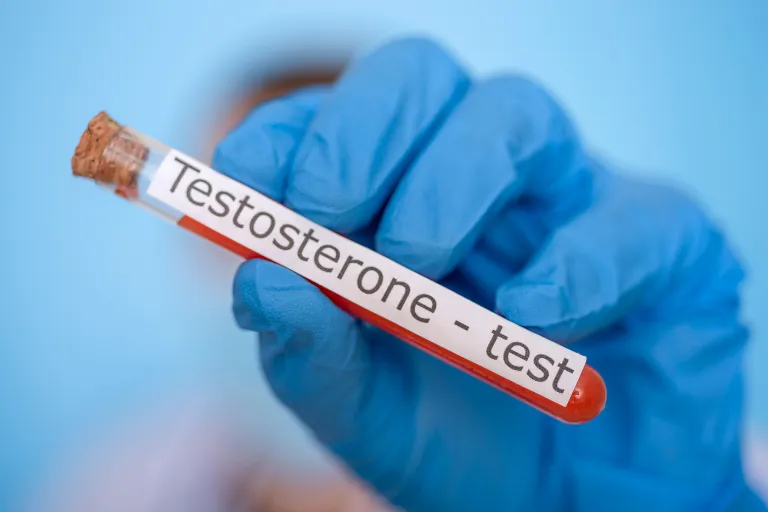What Is Testosterone and Why Does It Matter?
Testosterone plays a key role in men’s health, affecting everything from muscle mass and bone density to mood and energy levels. Maintaining balanced testosterone levels supports overall well-being and reduces the risk of health complications like fatigue, reduced libido, and muscle loss.
When Should You Consider a Testosterone Blood Test?
A testosterone blood test measures the amount of this vital hormone in your system. Testing is recommended if you experience:
- Low energy levels or persistent fatigue
- Decreased muscle strength
- Unexplained weight gain
- Reduced sex drive
- Mood swings or irritability
- Difficulty concentrating
- Hair thinning
These symptoms may suggest an imbalance, and early detection can help guide lifestyle adjustments or medical support if needed.
Types of Testosterone Tests: Which One Do You Need?
There are different types of tests available, each measuring specific aspects of testosterone levels:
Total Testosterone Test
This is the most common test, measuring both bound and free testosterone in the bloodstream. It provides a broad overview of hormonal balance.
Free Testosterone Test
This test measures only the active form of testosterone that is not bound to proteins. It is useful for assessing testosterone availability at a cellular level.
Bioavailable Testosterone Test
This measures free testosterone plus testosterone loosely bound to albumin, offering insight into how much testosterone the body can use.
Subscribe for Free for more insightful health articles tailored to your needs.
How to Prepare for a Testosterone Blood Test
Getting accurate results requires proper preparation:
- Schedule your test in the morning – Testosterone levels peak between 7 AM and 10 AM.
- Avoid intense workouts the day before – Strenuous exercise may temporarily lower testosterone.
- Fast for at least 8 hours – While not always necessary, fasting can improve accuracy.
- Limit alcohol and caffeine intake – These substances may impact hormonal balance.
- Discuss medications with your healthcare provider – Certain drugs, including steroids and opiates, can influence test results.
What to Expect During the Blood Test
The test is quick and straightforward:
- A healthcare professional will draw a small blood sample from a vein, usually in the arm.
- The sample is sent to a lab for analysis.
- Results are typically available within a few days.
Interpreting Testosterone Test Results
Testosterone levels are measured in nanograms per decilitre (ng/dL). Normal ranges vary by age:
- Young adults (20-30 years): 300–1000 ng/dL
- Middle-aged men (30-50 years): 250–900 ng/dL
- Older adults (50+ years): 200–800 ng/dL
What If Your Levels Are Low?
Low testosterone levels may indicate an underlying health issue. Common causes include:
- Chronic stress
- Sleep deprivation
- Obesity
- Underactive thyroid function
- Nutrient deficiencies (e.g., zinc, vitamin D)
What If Your Levels Are High?
Elevated testosterone can result from excessive supplementation, certain tumours, or underlying conditions affecting hormone production.
Subscribe for Free for more insightful health articles tailored to your needs.
Natural Ways to Support Healthy Testosterone Levels
1. Prioritise Quality Sleep
Lack of sleep disrupts hormone production. Aim for 7–9 hours of rest each night.
2. Optimise Nutrition
- Increase protein intake to support muscle maintenance.
- Incorporate healthy fats (e.g., avocado, olive oil, nuts) to promote hormone production.
- Ensure sufficient vitamin D and zinc through diet or supplements.
3. Engage in Strength Training
Weightlifting and resistance exercises stimulate testosterone production. Focus on compound movements like squats, deadlifts, and bench presses.
4. Manage Stress Levels
Chronic stress raises cortisol, which can suppress testosterone. Mindfulness practices, breathing exercises, and regular physical activity help regulate stress.
5. Maintain a Healthy Weight
Excess body fat, particularly around the abdomen, is linked to lower testosterone levels. A balanced diet and consistent exercise routine can support hormone balance.
When to Seek Further Evaluation
If your testosterone blood test results indicate an imbalance and lifestyle changes do not improve symptoms, consult a healthcare provider for further assessment. Additional tests may be required to determine the root cause of the imbalance and guide appropriate steps.
Subscribe for Free for more insightful health articles tailored to your needs.
Take Control of Your Hormonal Health
Understanding testosterone levels empowers you to make informed decisions about your well-being. If you experience symptoms of imbalance, consider getting tested and making lifestyle adjustments to support optimal health.
This blog post aims to be informational and should not replace professional medical advice. Always consult with a healthcare provider for personalised advice.



